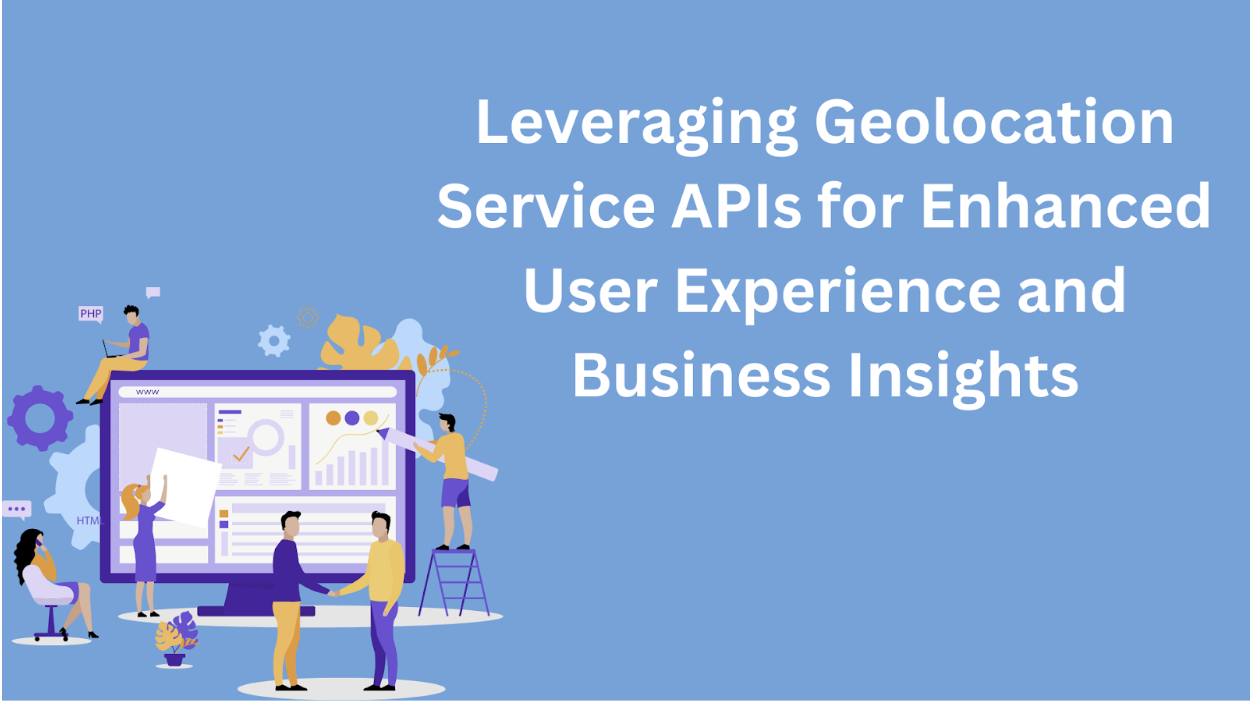In the digital age, where location-based services are becoming increasingly important, integrating geolocation service APIs into your applications can provide significant benefits. Geolocation service APIs enable developers to retrieve detailed location information, such as latitude and longitude coordinates, from various devices, including smartphones, tablets, and computers.
This information can be leveraged to enhance user experiences, deliver targeted content, and gain valuable insights into user behavior. In this blog post, we'll explore the benefits of using geolocation service APIs and how they can be implemented in developer and business contexts.

What is a Geolocation Service API?
A geolocation service API is a tool that provides developers with access to geolocation data. This data can include a device's geographic location, altitude, speed of movement, and other relevant information. Geolocation service APIs typically rely on a combination of GPS, Wi-Fi, and cellular network data to determine a device's location accurately.
Benefits of Using Geolocation Service APIs
- By leveraging geolocation service APIs, developers can create applications that offer personalized experiences based on the user's location. For example, an e-commerce app can display nearby stores or offer location-specific deals.
- Businesses can use geolocation service APIs to target their marketing efforts more effectively. By knowing the user's location, businesses can deliver targeted advertisements or promotions based on their geographical area.
- Geolocation service APIs provide real-time location updates, allowing applications to track the movement of users or assets. This feature is particularly useful for real-time tracking applications, such as delivery services or fleet management systems.
- Geolocation service APIs enable developers to create geofences and virtual boundaries around a geographical area. When a device enters or exits a geofenced area, the API can trigger predefined actions, such as sending a notification or updating a database.

Implementing Geolocation Service APIs
To implement a geolocation service API in your application, you must choose a provider with the required features and capabilities. Some popular providers include Google Maps Platform, Mapbox, and HERE Technologies. Once you've selected a provider, you must integrate its API into your application using the provider's documentation and developer tools.
Conclusion
Geolocation service APIs offer a wide range of benefits for developers and businesses. By leveraging these APIs, you can create applications that deliver personalized experiences, improve targeting, and gain valuable insights into user behavior. Whether you're developing a mobile app, a website, or a business intelligence tool, integrating a geolocation service API can help you unlock new opportunities and enhance your application's capabilities.
FAQs
Are geolocation service APIs accurate?
Geolocation service APIs can provide accurate location information. Still, the accuracy can vary depending on several factors, including the device's hardware, the quality of the network connection, and the API provider's algorithms.
Are geolocation service APIs free to use?
Many geolocation service APIs offer free tier plans with limited usage. However, you may need to pay for a premium plan for high-volume or commercial use.
How can businesses protect user privacy when using geolocation service APIs?
To protect user privacy, businesses should comply with relevant data protection regulations, such as GDPR or CCPA. This includes obtaining user consent before collecting or using their location data and implementing robust security measures to protect the data from unauthorized access.
Can geolocation service APIs be used for asset tracking?
Yes, geolocation service APIs can be used for asset tracking. By integrating a geolocation service API into an asset-tracking application, businesses can monitor the location of their assets in real-time and receive alerts if an asset leaves a predefined area.